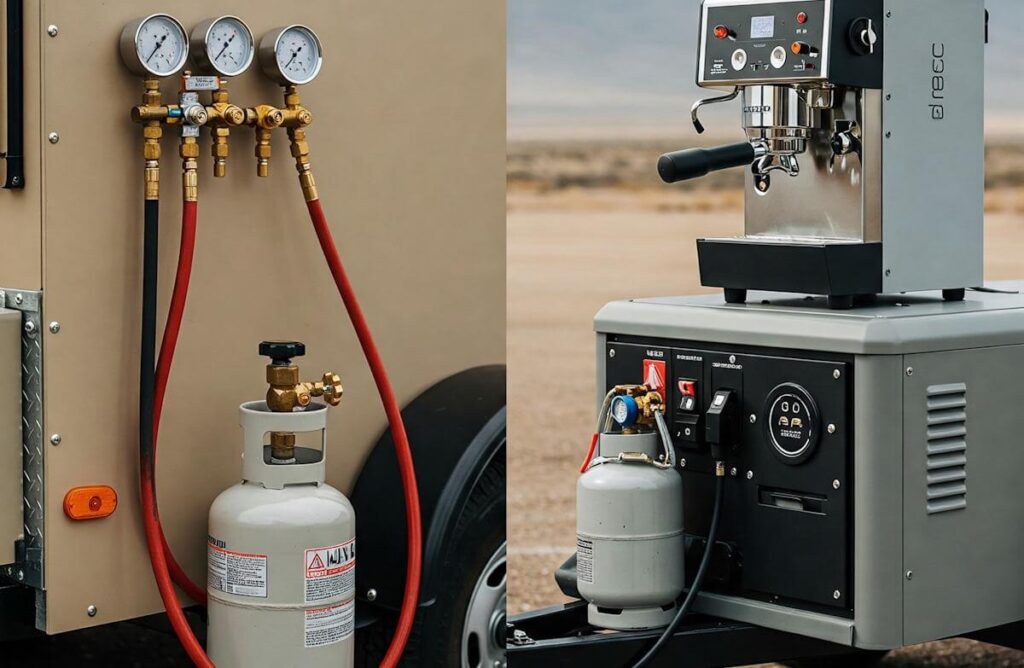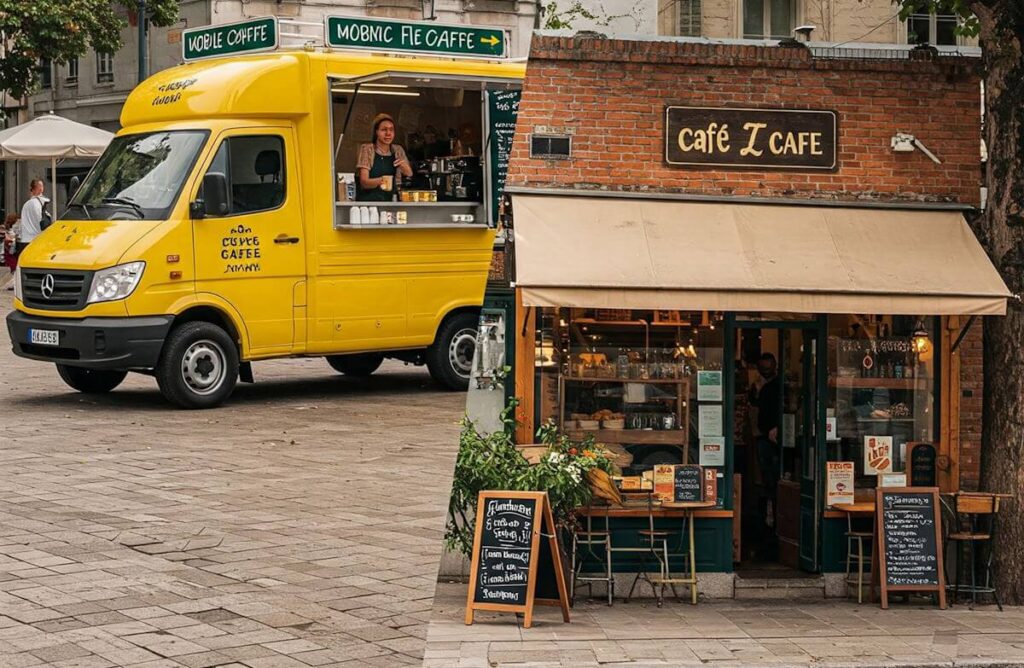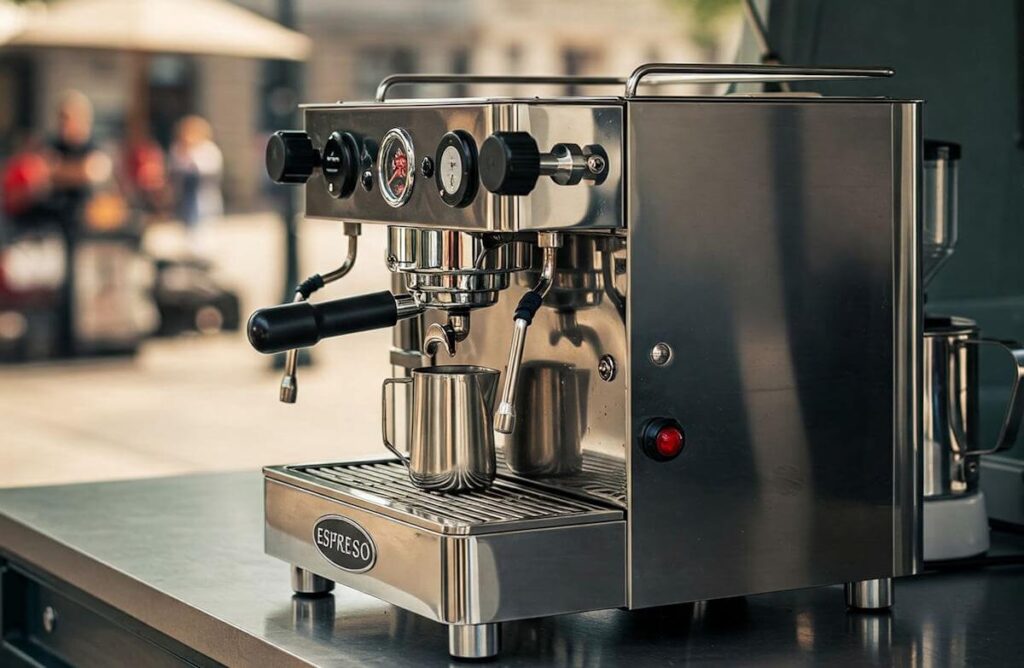Coffee trailers have emerged as a transformative force in the mobile coffee industry, catering to the increasing demand for specialty coffee on the go. These compact units allow entrepreneurs to bring high-quality coffee products directly to consumers in various settings, such as festivals, markets, and office complexes. As the trend of mobile coffee services grows, coffee trailers are becoming an attractive option for both established coffee businesses looking to expand and new startups eager to enter the market.
The unique structure of coffee trailers presents several challenges that owners must navigate to ensure their success. Primarily, space limitations dictate that every piece of equipment must be carefully considered. Each trailer operates under strict dimensions that influence the type and size of coffee-making equipment available. This necessitates a strategic approach to selecting equipment that maximizes utility while maintaining a compact footprint.
Mobility is another fundamental aspect of coffee trailers that impacts operational choices. The ability to relocate from one event to another means that equipment needs to be durable, easy to transport, and versatile enough to handle various brewing methods. Additionally, the need for efficient service delivery is paramount, as customers expect timely service in fast-paced environments. This urgency drives coffee trailer owners to prioritize equipment that can quickly produce high-quality beverages without compromising on taste or efficiency.
As a result, the decision between gas and electric equipment becomes increasingly significant. Each option provides different advantages and challenges that must be weighed carefully. Understanding these factors will assist coffee trailer owners in making informed choices that align with their operational needs and customer expectations. This exploration sets the groundwork for comparing gas versus electric equipment, highlighting the implications of each option for effectively serving customers.
Understanding Gas Equipment in Coffee Trailers
Gas equipment has become an essential aspect of the coffee trailer industry, providing baristas with the tools necessary to serve high-quality beverages efficiently. In typical coffee trailers, several appliances are powered by gas, including espresso machines, grinders, and water heaters. These gas-powered devices offer unique advantages that can enhance the overall functionality of a mobile coffee business.
One of the primary benefits of using gas equipment is the rapid heating times it provides. Gas espresso machines can reach optimal brewing temperatures significantly faster than their electric counterparts, allowing for quicker service during peak hours. This speed can be particularly advantageous for coffee trailers, where time and efficiency directly correlate with customer satisfaction and sales. Moreover, gas-powered grinders offer the same advantages, often resulting in better performance and consistent particle size, which is vital for espresso quality.
Another notable advantage is the power that gas equipment can deliver. In many locations, trailers may operate in areas devoid of electrical infrastructure, making electricity-dependent equipment impractical. Gas allows coffee trailers to maintain consistent operations in remote areas or during outdoor events, thereby broadening market reach and operational flexibility.
However, there are several factors to consider when using gas equipment. Regular maintenance is critical to ensure the gear operates safely and efficiently. The requirements for refueling can also impose logistics challenges, necessitating time and resources to manage fuel supplies. Additionally, safety considerations, including gas leaks and proper ventilation, must be prioritized to prevent accidents and ensure the wellbeing of staff and customers.
In summary, while gas equipment in coffee trailers offers distinct benefits such as rapid heating and operational flexibility, it is essential to balance these advantages with maintenance requirements and safety considerations. This understanding allows coffee trailer operators to make informed decisions about the equipment they choose to employ in their business.
Exploring Electric Equipment for Coffee Trailers
In the realm of coffee trailers, electric equipment plays a crucial role in delivering quality beverages efficiently and consistently. A variety of appliances, such as espresso machines, blenders, and drip coffee makers, are essential for the smooth operation of these mobile outlets. Electric espresso machines, for instance, are favored for their ability to produce high-quality espresso shots quickly, allowing baristas to serve customers with speed and precision. Additionally, electric blenders are indispensable for creating various coffee-based beverages, such as frappes and smoothies, enhancing the menu options offered on-the-go.
One of the significant advantages of electric equipment is its ease of use. Many modern electric appliances come equipped with user-friendly controls and automated features, simplifying the brewing process for baristas, regardless of their experience level. This ease of operation not only boosts efficiency but also ensures a consistent product quality, essential for customer satisfaction. Furthermore, electric appliances generally produce lower emissions compared to gas-powered equipment, aligning with current trends towards sustainability and environmental consciousness.
Moreover, electric equipment requires less maintenance than their gas counterparts. With fewer moving parts and less complex systems, electric appliances typically experience reduced wear and tear, leading to lower operational costs over time. However, it is important to consider the limitations associated with electric equipment as well. Dependency on power sources can restrict flexibility, particularly in outdoor settings where access to electricity may be limited. Additionally, some electric appliances may face issues with overheating during prolonged use, which could impact performance and lead to potential downtime.
Balancing the advantages and limitations of electric equipment is key for coffee trailer operators to choose the right appliances that will meet their specific needs and operational requirements effectively.
Cost Comparison: Gas vs. Electric Equipment
When evaluating the cost implications of operating a coffee trailer, the choice between gas and electric equipment is crucial. The initial investment in equipment is often one of the primary considerations. Generally, gas equipment tends to have a lower upfront cost compared to electric equipment. This price difference can be attributed to the technology and components required for each. For instance, espresso machines and coffee brewers powered by gas can be more economically attainable, while electric equipment often features advanced technologies that may drive up the initial price.
Operational costs are another significant factor. Fuel costs for gas equipment can fluctuate based on market conditions, which means that while they might offer lower prices at times, they may spike unpredictably. In contrast, electric equipment offers more stability in the cost of operation, as electricity rates tend to change less dramatically over time. This can make budgeting for energy consumption in a coffee trailer setting simpler and more predictable. However, depending on the region and electricity source, gas could still provide an economical solution for certain operators.
Maintenance expenses also warrant consideration, as both gas and electric equipment present different challenges and needs. Gas appliances generally require more frequent servicing due to the complexity of their components, such as gas lines and burners. On the other hand, electric equipment might need repair related to electronic malfunctions, which can sometimes be costlier due to specialized labor required for repairs. An ideal analysis should include the long-term costs related to both options, considering expected lifespans and repair frequencies.
Ultimately, performing a detailed financial analysis that encompasses purchase prices, fuel or electricity costs, and maintenance expenses can help prospective coffee trailer owners make an informed decision. By thoroughly comparing the two options, one can identify which equipment type aligns better with their business model and operational capabilities.
Performance Analysis: Speed and Quality of Brew
The performance of brewing equipment significantly influences both the speed of production and the quality of the coffee served, particularly in the fast-paced environment of coffee trailers. When comparing gas and electric equipment, one can observe distinct differences in their heating methods, which directly impact coffee extraction as well as flavor profiles. Gas equipment generally heats water more rapidly, reaching optimal brewing temperatures swiftly, which can be crucial during peak service hours in a coffee trailer setting. However, some users have reported that the quick heating can sometimes lead to inconsistency in extraction, particularly if the operator is not vigilant about timing.
On the other hand, electric equipment tends to provide more stable temperature control, which is beneficial for achieving consistent brew quality. These machines usually maintain precise and regulated temperatures throughout the brewing process, which can lead to a more uniform extraction of flavors from the coffee grounds. Many coffee trailer owners who utilize electric equipment state that the quality of their brews has improved significantly, with more balanced flavor and aroma profiles, thereby enhancing customer satisfaction.
Real-world testimonials illustrate these contrasts. For instance, a trailer owner using a gas espresso machine remarked on its excellent performance during high-demand periods, asserting that the ability to quickly produce large volumes of coffee made a notable difference in service speed. Conversely, another owner who switched to an electric machine highlighted that while the initial heating time might be longer, the end product’s richness and consistency made it worth the wait. Ultimately, the choice between gas and electric equipment in coffee trailers often depends on specific operational needs and personal preferences. Each has its advantages and drawbacks regarding brewing speed and quality, leading to diverse customer experiences in the mobile coffee business.
Environmental Impact of Gas vs. Electric Equipment
The environmental considerations surrounding the choice between gas and electric equipment in coffee trailers have become increasingly significant. Each option presents distinct implications for the carbon footprint associated with coffee preparation and overall operational practices. Gas equipment typically relies on natural gas or propane, which, during combustion, releases carbon dioxide and other greenhouse gases into the atmosphere. Although natural gas is often touted as a cleaner burning fuel compared to coal, its usage still contributes to climate change through direct emissions.
On the other hand, electric equipment’s environmental impact largely depends on the source of electricity. If the power is generated from fossil fuels, the indirect emissions may rival those of gas equipment. However, a growing percentage of electricity globally is being sourced from renewable resources such as wind, solar, and hydroelectric. As the energy grid continues to evolve and shift towards more sustainable practices, electric equipment in coffee trailers can offer a more environmentally friendly solution.
The coffee industry is actively pursuing sustainability trends, considering how equipment choices affect their ecological footprint. Many coffee trailer operators are now adopting electric equipment, motivated by a desire to align themselves with eco-conscious consumer demands. By making informed choices, operators can significantly contribute to reducing greenhouse gas emissions and embrace a more sustainable business model.
Choosing the right equipment not only impacts energy consumption and emissions but also influences customer perceptions. Eco-friendly practices in coffee trailers allow businesses to appeal to a growing segment of consumers who prioritize environmental responsibility. Therefore, an informed decision considering both gas and electric options can lead toward advancing overall sustainability practices in the coffee industry.
Regulatory and Safety Considerations
When operating coffee trailers, understanding the regulatory landscape surrounding gas and electric equipment is paramount. Each type of equipment comes with specific mandates and safety codes that owners must adhere to in order to ensure compliance, reduce risks, and safeguard both their business and customers. For gas-powered equipment, operators should be aware of industry standards such as those established by the National Fire Protection Association (NFPA) and the American Society of Mechanical Engineers (ASME). These standards govern the safe installation, maintenance, and operation of gas appliances in mobile food operations.
Moreover, acquiring the necessary licenses and permits is crucial. Depending on local regulations, food trailer operators may need to secure permits for gas installations, which often require professional inspections to ensure compliance with safety codes. These inspections focus on leak testing, venting requirements, and emergency shut-off mechanisms, reinforcing the importance of safety when utilizing gas-powered equipment in a restricted environment, such as a food trailer.
On the flip side, electric equipment comes with its own set of regulatory standards, predominantly governed by the National Electrical Code (NEC). Compliance with these electrical safety codes is essential in preventing potential hazards such as electrical shocks and fire risks. Food trailer operators must ensure that all wiring, connections, and appliances comply with local electrical codes, which may vary by jurisdiction. In many cases, certified electricians will need to install electric systems to meet safety standards and ensure that the equipment operates efficiently.
Regular inspections and adherence to maintenance schedules also play a significant role in upholding safety standards for both gas and electric equipment. By prioritizing compliance with existing regulations, coffee trailer operators can mitigate risks associated with equipment failures or safety violations, ultimately protecting their business reputation and ensuring customer safety.
User Experiences and Testimonials
In the competitive realm of mobile coffee services, the choice between gas and electric equipment is often pivotal for operators. Many coffee trailer owners have shared their experiences, highlighting both the advantages and challenges presented by each type of equipment. For instance, John, an operator from Seattle, favors his gas machine due to its robust performance during peak hours. He noted, “With gas, I can brew multiple orders simultaneously without a drop in quality. This has significantly improved my service speed, especially during busy events.” Such user experiences underline the reliability and efficiency that gas equipment can provide in high-demand situations.
On the other hand, Sarah, who runs a coffee trailer in Portland, prefers electric equipment for its convenience. “Electric machines are much quieter and cleaner,” she states. “I love the consistency they offer; I can set them up with minimal fuss, and they take less maintenance. This allows me to focus more on customer interaction rather than troubleshooting.” Her perspective emphasizes how electric options can support a smoother operation, especially in venues with noise restrictions.
However, each choice is not without its trade-offs. Mark, a trailer operator who initially favored gas but has since switched to electric, recounted his struggles with fuel sourcing during the pandemic. “Finding a reliable gas supplier became a hassle, whereas my electric machine is powered by the trailer’s generator. In the long run, this has saved me time and money,” he reflected. These testimonials from coffee trailer operators illustrate the importance of practical experiences in deciding between gas and electric equipment. Each operator’s unique situation brings valuable insights into how equipment choices can directly affect their business operations and customer satisfaction.
Conclusion: Which Option is Best for Your Coffee Trailer?
When deciding between gas and electric equipment for coffee trailers, it is essential to consider several critical factors that will ultimately influence your choice. Both options offer distinct advantages and potential drawbacks, making it vital to evaluate them in the context of your particular business environment.
First, the location of your coffee trailer plays a significant role in determining which type of equipment may be more suitable. If you operate in remote areas where electricity supply is unreliable, gas equipment could provide the independence needed to operate smoothly. On the other hand, urban settings with adequate electrical infrastructure can benefit from electric equipment, which often offers convenience and consistent power. Additionally, local regulations regarding emissions and safety should also be kept in mind, as some areas may favor one option over the other.
Budget considerations are another key aspect that influences the decision-making process. Generally, gas equipment tends to have a lower initial cost compared to electric counterparts, but it is essential to factor in ongoing expenses like fuel and maintenance. Electric equipment may have higher upfront costs, yet they often prove to be more energy-efficient and could save money in the long run. Analyzing both immediate and long-term costs ensures that you make a financially sound choice for your coffee trailer.
Finally, aligning your equipment choice with your business goals is crucial. Think about your target market, menu offerings, and the volume of coffee you anticipate selling. Understanding these elements will help determine whether gas or electric equipment will best support your operation. In conclusion, the decision should be based on a careful assessment of your specific needs, ensuring that the equipment you choose will facilitate a successful and efficient coffee trailer business.




